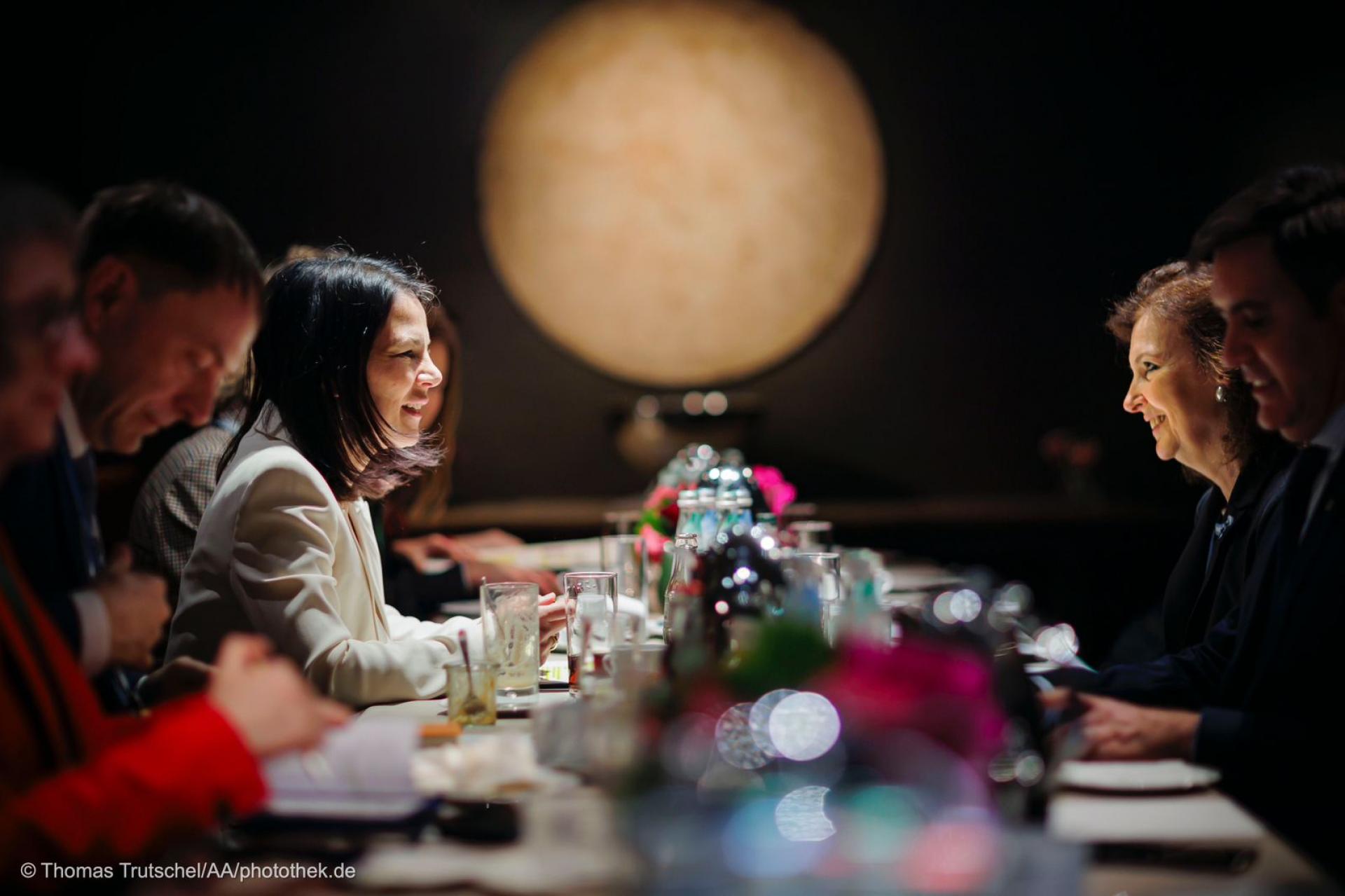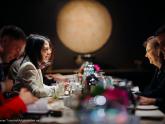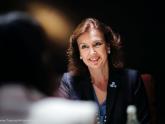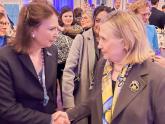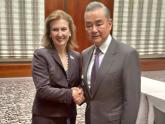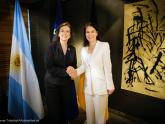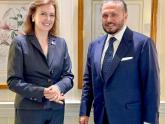The war in Ukraine has left an indelible mark on the historic forum for debate on security and global governance that, for 60 years, has brought together the main heads of government, foreign ministers and defense ministers of the world, along with politics and business actors.
The news of the death of Alexei Navalny in an Arctic prison yesterday and the presence at the conference of the Ukrainian leader Volodymyr Zelensky, together with the Federal Chancellor Olaf Scholz, the President of the European Commission Ursula von der Leyen and the Minister of Foreign Affairs Foreign Minister of China Wang Yi, marked the beginning of the second day of the Conference.
In this context, Foreign Minister Diana Mondino participated, together with Hillary Clinton, in a leaders' breakfast to analyze the current geopolitical context defined by the war in Ukraine and the crisis in the Middle East, among other multiple threats to the international system that force Western democracies to work in coordination to strengthen cooperation and multilateralism.
Mondino then held a bilateral meeting with her Chinese counterpart Wang Yi, the first between both ministers and a few days before commemorating the 52 years of the establishment of diplomatic relations between Argentina and China. Both officials agreed on the strategic nature of a relationship defined as “mature and solid to overcome obstacles and ready to maintain the development momentum.” The meeting confirmed the relationship of trust between two partners whose economies and societies present remarkable complementarity. Foreign Minister Mondino highlighted the importance of bilateral commercial links and stressed that multilateralism, within the framework of the United Nations, is a basic principle of the new Argentine government based on respect for freedom.
Argentina’s Minister was later received by her German counterpart, Annalena Baerbock, who had just arrived from Jerusalem. Both ministers highlighted the importance of the convergence of values and principles of liberal democracies in international forums, with a focus on strengthening multilateralism. Mondino recalled President Milei's trip to Antarctica to participate in an environmental impact study and invited Baerbock to accompany her on an upcoming trip.
The conflict in Ukraine was another topic of the conversation, the very same day that President Zelensky participated in the Conference. The German Minister recognized and expressed her gratitude for Argentina’s support for German initiatives at the United Nations, as well as both countries’ convergence on positions in multilateral forums on issues such as Ukraine. Furthermore, they both agreed to continue working together to strengthen the bilateral relationship, based on common values and principles, and agreed to meet again next week at the G20 Ministerial Meeting in Rio de Janeiro.
Mondino met afterwards with John Kerry, President Biden's Special Envoy for Climate; they addressed the commitments made by middle-income countries such as Argentina, the importance of promoting food and energy security, the role of multilateral development banks as well as financial mechanisms to address climate change challenges.
The Argentine Foreign Minister also held a working meeting with Cary Fowler, United States’ Special Envoy for Global Food Security, with whom she analyzed the global stagnation in food production (related, in many cases, to food export bands) and the current food crisis, as well as the impact of such context on Argentina’s major role as a global supplier. As to the reduction of methane emissions, Mondino highlighted that “Argentina is part of the solution and not the problem” based on sustainable livestock farming. Both officials highlighted the need to intensify technical cooperation and technological transfer between Argentina and the United States to increase productivity and arable land through the introduction of technology.
In a meeting with Dr. Anwar Gargash, senior foreign relations advisor to the President of the United Arab Emirates, Foreign Minister Mondino was congratulated on the economic path adopted by the new Argentine government, agreeing on the significance of the Bilateral Agreement for the Reciprocal Protection of Investments (BIT) to advance a true bilateral business agenda that will result in greater investments in new sectors in our country. They also analyzed the projects financed by the Abu Dhabi Fund for Development currently underway in Argentina (Nahueve Project; Arijón Desvío Aqueduct Stage II and Córdoba Trunk Aqueducts) and identified sectors to make new businesses related to technological innovation, tourism and food.
During her second day at the Conference, the Minister also met with Luminița-Teodora Odobescu, Minister of Foreign Affairs of Romania; Gordan Grlic Radman, Minister of Foreign Affairs and European Affairs of Croatia; Mariya Gabriel, Minister of Foreign Affairs of Bulgaria; and Wolfgang Schmidt, Head of the Federal Chancellery of the Government of Germany. She was also interviewed by journalists Jennifer Wilton, Editor in Chief of the German media DIE WELT, and Jamil Anderlini, Editor in Chief of POLITICO Europe.

